By Courtney Clark, CSP and Dr. Andy Neillie, CSP
You’re not just a speaker.
You’re not just a storyteller.
You’re not just a subject-matter expert with a killer keynote.
You’re also—whether you like it or not—a salesperson.
That sentence might make you cringe. For many of us in the speaking profession, “sell” can feel like a four-letter word. Maybe it brings up images of used car lots or relentless cold calls. But here’s the truth: If you’re a professional speaker, you are in the business of solving problems for your clients. And the way you position, price, and promote that solution? That’s sales.
Why “Salesperson” Should Come Before “Speaker” on Your Business Card
Courtney:
In my early days of speaking, I thought if I just worked hard enough on my content—if I delivered transformational moments onstage—then the business would take care of itself. If I built it, they would come, right? Spoiler alert: they didn’t. Not until I learned how to sell myself effectively did my speaking calendar fill the way I wanted it to.
Andy:
I’ve coached and trained thousands of salespeople over the years. The best ones don’t push products—they connect deeply, listen actively, and position value clearly. Sound familiar? That’s what we do on stage and in conference rooms. So why not bring that same excellence into our pre-sale conversations?
Whether you’re just launching your speaking business or you’re 20 years in and hitting a plateau, there’s no getting around it: mastering sales is the engine that drives a sustainable speaking business.
Three Reasons You Must Embrace Your Inner Salesperson
1. No One Sells You Better Than You
You might have a bureau partner or a marketing team behind you—but in the end, no one will advocate for your message, your mission, or your value like you will. And if you aren’t selling yourself because you’re not sure how to? Don’t bet on someone ELSE being able to identify and market your uniqueness better than you can.
2. Your Presentation Doesn’t Speak for Itself
Great content is essential, but it doesn’t leap off your website and into someone’s annual meeting agenda. You must learn to articulate not just what you do, but why it matters to that audience at that moment. That’s a sales skill.
3. Consistency Beats Charisma
The most successful speakers aren’t always the most charismatic—they’re the most consistent. They follow up. They ask good questions. They show up prepared and early. Sales isn’t about being slick—it’s about being strategic.
How to Become a Sales-Savvy Speaker
Now that we’ve convinced you to put on your sales hat, let’s talk about how to wear it well.
1. Practice Pre-Call Planning
Andy:
Before every sales conversation, I coach clients to answer three questions:
- What do I already know about this prospect?
- What do I still need to learn?
- How can I position myself as a solution to their pain?
Speakers often wing sales calls. But professionals plan. The more strategic you are before you pick up the phone, the more likely you are to get booked.
2. Use Curiosity as Your Superpower
Courtney:
Sales isn’t about talking someone into something. It’s about being curious enough to understand what your buyer actually needs—and then showing how you uniquely meet that need. Ask better questions. Listen for the words beneath the words. That’s where the real opportunities lie.
3. Sell Outcomes, Not Talks
You’re not selling a 60-minute keynote. You’re selling increased engagement, culture change, or reduced burnout. Shift your language from “I speak about X” to “I help organizations achieve Y by doing X.” The more clearly you can connect your content to your client’s outcomes, the more easily you’ll close the sale.
4. Create a Follow-up System (and use it relentlessly)
The sale is rarely made on the first call. Or the second. Or sometimes even the third. A simple CRM or spreadsheet, coupled with a disciplined follow-up process, is often the difference between being “considered” and being “contracted.” Andy: for instance, I’ve used the Speakerflow Zoho system for five years, and it has turned my passion around leadership development into a consistent 6-figure+ annual business.
5. Handle Objections with Confidence and Curiosity
Courtney:
When a client says, “You’re out of our budget,” that’s not the end of the conversation—it’s the beginning of a deeper one. What is the budget? What are they comparing you to? What else is competing for their dollars? Objections aren’t rejections—they’re opportunities for clarity. If I can show a client how bringing me in to work with their team affects the bottom line, my value shoots up and they often find more budget.
Resilient Speakers Know Sales Is a Skillset
Courtney:
Adaptability and resilience aren’t just about handling disruption—they’re also about being willing to develop new competencies. If “sales” has been your sticking point, maybe it’s time to shift the story you tell yourself. You’re not “bad at sales.” You’re learning how to do it better. And when you do, everything about your business will change.
Final Thoughts from Andy
We love the stage and the conference room. We love the moments of impact. But let’s not forget what gets us to the stage in the first place. Your business only grows when your ability to connect with prospects grows. Embrace your role as a salesperson—not just out of necessity, but as a point of professional pride.
Because in the end, selling well isn’t separate from speaking well. It’s part of the same calling: helping people move from where they are to where they want to be.


This is a superb reminder and motivating reinforcer that I am not alone on this island of ‘I’m not good at sales’. Hearing the consistent challenge among many of my colleague speakers, together with a few poignant and effective actions, quiets my resistant self and energizes my ‘yes you can’ self. Thanks for the generous nudge forward!
Spot on with every point. Thank you!